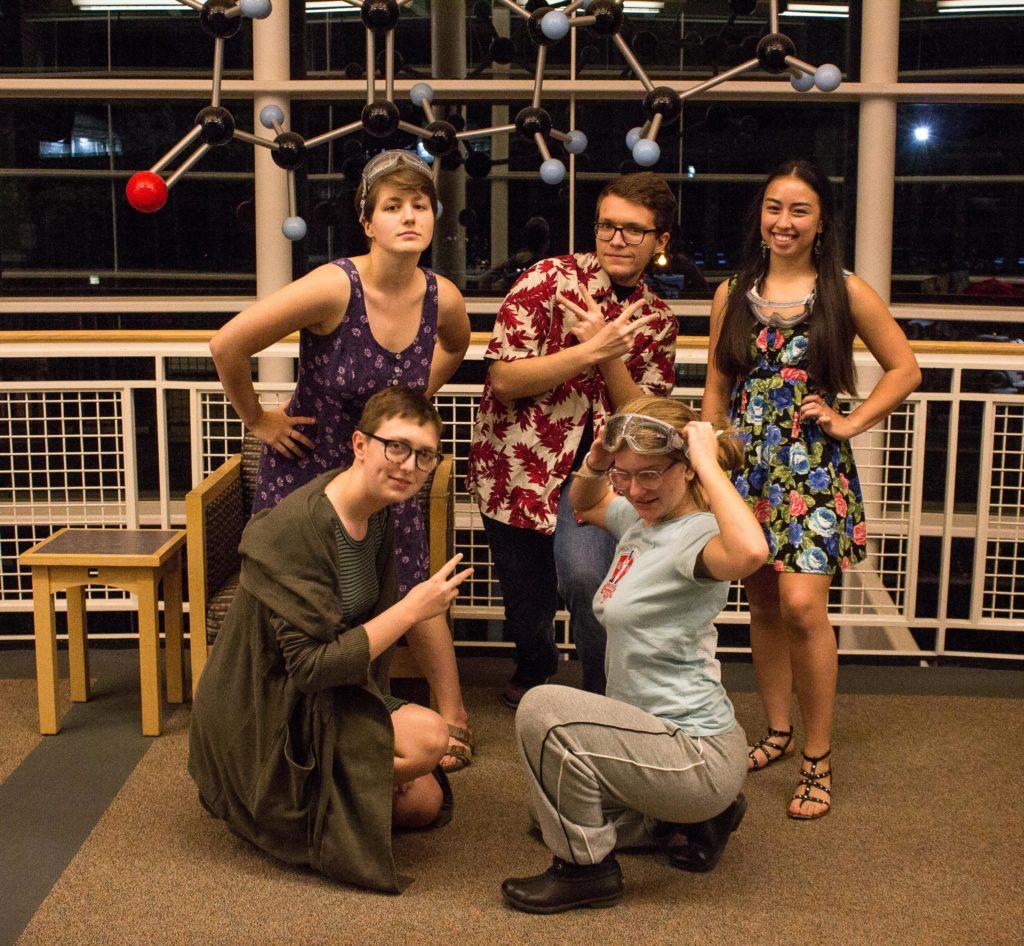Believe it or not, the bond of the Chemistry Student Educational Policy Committee (SEPC) is stronger than a covalent bond. The members of this year’s SEPC are Katie Parrish ’18, Alitza Shutt ’18, Micheal Kolanowski ’19, Aidan Call ’19 and Vivian Cheslack ’19. These students work to provide input for hiring potential Chemistry professors, work closely with faculty, act as a liaison between students and the department and build community within the Chemistry major.
“We also just try to get people interested in chemistry,” Call said.
“We are also representatives for the department and try to show what the department can offer,” Parrish added. “I know I feel like we have an all-star chemistry department.”
Another role of the SEPC is to serve as a resource for students. “I just want to be a friendly face,” Parrish said. “I want people to feel like they can come and talk to me.”
The SEPC also plans study breaks, a way to build community and take a break from strenuous homework. The chemistry SEPC takes this responsibility very seriously and tries to plan study breaks that stick out from the conventional food-based study break.
The Chemistry SEPC recently planned a study break that focused on decorating lab notebooks. “We bought a bunch of stickers, paints and glitter glue,” Kolanowski said. This study break was a favorite among students.
“[Students] really seemed to enjoy the stickers,” Kolanowski said.
The SEPC can agree that their love of chemistry and desire to share the virtues of the major led them to their position on the SEPC.
“I thought that I might as well use my time to do some good and host study breaks, and also try to get more students interested in the chemistry major and little things to help out the department and sort of give back,” Kolanowski said.
A goal of the SEPC is to reach out to underclassmen about the chemistry major. Already underclassmen have indicated interest in the chemistry major by joining the email list or attending study breaks, something that the SEPC is very excited about.
“I feel that we’re a really great unit as the chemistry department, and trying to spread that more to first and second-years and get them excited about chemistry and not just about medicine,” Cheslack added.
The Chemistry SEPC recognizes their important role in helping underclassmen through not only the difficulties of the chemistry major, but through college as well.
“We work really hard to be positive,” Call said. “My first and second year as a chemistry major were not positive times, so you need to be a good role model for the underclassmen so they know it’s ok and [you can get through] these tough times.”



















































